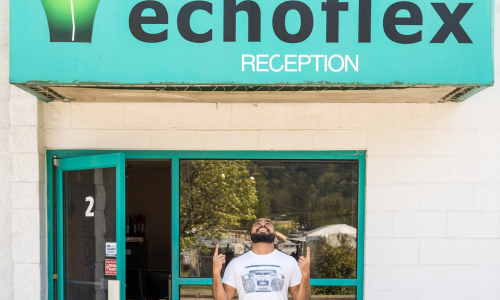
I’ve been struggling lately with a lack of things to write about in this blog. I have almost a half-dozen post topics jotted down, some with just a catchy title, some with a few sentences put together, but none of them have really gone past the introduction stage.
The inability to write a proper post had me thinking about when I first realised I enjoyed writing in the first place, and why. I trace this back to the sixth grade, when the right factors came together that made me realize that once I was able to move past the annoying barriers of discouraging details and look at the bigger picture, I could actually write down what I wanted to say.
The two factors that came together here was access to a home computer, and an amazing teacher.
First, some back story: Around the time I was old enough that horrible spelling in writing assignments went from an endearing trait of kids who still write their “S”’s backwards, to a legitimate problem in school, everyone suddenly realised that I couldn’t spell for the life of me.
I was such a horrible speller that I was taken out of class in third grade to meet with a Special Ed teacher. At the time, I was an avid reader, and I quickly devoured any book I came across. Long story short, teachers didn’t understand how I could read so well, but spell so poorly. Naturally, they assumed that I had been memorizing entire books and simply repeating them back when asked. Now, why they thought I was capable of this caper, but not of figuring out how to spell “country” I’ll never understand.
The result was that I was often taken out of class for reading and spelling tests. I still remember the teaching aid who, in a fit of frustration, gave up trying to stump me with age-appropriate readers and finally just had me read from her own textbook. At least that finally convinced them I wasn’t lying. I was still forced to leave class for extra spelling classes though, which for my 9 year-old self was nothing short of a tragic embarrassment (and it still did nothing for my pathetic spelling skills).
From that point on, I dreaded writing, because it meant I’d have to figure out how to spell new words, and when I eventually got them wrong my stories would be so filled with red spelling corrections that I couldn’t focus on any sort of positive feedback I received about the story itself.
Now, fast forward a few years, and my family finally had our first home computer. Now I could use this amazing 2001 version of Microsoft Word to helpfully fix all of my many spelling mistakes. To this day, spell check is nothing short of a miracle in my life.
Now comes the second piece of the puzzle; my sixth grade teacher, Mrs. Labelle. She was big on literacy, in fact, I think she now travels around our school district showing teachers how to help their students read and write better. This was the first year that we never had spelling tests, or silly assignments that involved writing sentences that contained certain words. Instead, we had TFTW: Thought for the Week. Every Monday we were given a quote, we discussed it, and then we had one week to write a page about it.
Now, I don’t remember much about what grammar rules or spelling tips we learned that year, but I remember the introduction to the PEE (Point-Example-Explain) paragraph structure.
The point of this background story was that once I internalized this simple structure, writing became so much easier. I received good grades in English for the first time, and combined with the wonder of spell check, I realized that coming up with creative ways to write all of my thoughts down was pretty fun. By the end of the year, I was pretty good (at least for a 12 year-old) and my favorite teacher even asked if she could take my work to use as examples for when she toured to other schools.
Now, I’m not saying this as a decade old humblebrag, but to show how having one person show such confidence in my work changed my whole outlook. Obviously, not everyone can have such an amazing teacher. Some people get stuck with the ones who think they can’t read their whole life (or even worse, with the ones who don’t care). If at all possible, however, try to seek out someone that can fill this role. They can help take you out of whatever flailing orb of insecurity you’re in, and enable you to fulfill your potential.
If you’ve reached the end of this meandering post I’ve decided to write in lieu of any sort of actual Co-op reflection, I guess I owe you the moral of my story. Basically, it’s to not give up on yourself. Sure, some people may assume that you can’t do something, but maybe the right combination of circumstances haven’t come around yet. For me, it was a word processor and a great teacher. Who knows that it could be for you.
If you'd like to hear about something specific from my co-op leave a comment or tweet me at @lizzmoffat or @SFU_OLC. Plus, make sure you check out the rest of my Diary of a Marketing Co-op series.
Beyond the Blog
- Check out the Communications Co-op Blog, Communique, for more stories like Elizabeth's!
















